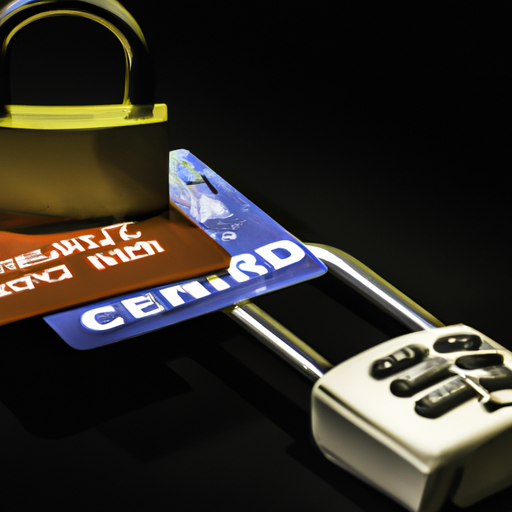In the digital age, maintaining the security of your network is crucial to protecting your business from potential vulnerabilities and threats. This is where PCI compliance comes into play. PCI compliance, which stands for Payment Card Industry compliance, involves adhering to a set of standards and regulations that ensure the security of payment card data. In this article, we will explore the importance of PCI compliance for network security and discuss how it can benefit your business. Additionally, we will provide you with some frequently asked questions and their concise answers to assist you in understanding this critical aspect of network security.
Understanding PCI Compliance
What is PCI Compliance?
PCI Compliance, or Payment Card Industry Compliance, refers to the set of standards and guidelines established by the Payment Card Industry Security Standards Council (PCI SSC). These standards are designed to ensure that businesses that process, store, or transmit credit card information maintain a secure environment and protect sensitive cardholder data.
Why is PCI Compliance Important?
PCI Compliance is crucial for businesses that handle credit card information because it helps to mitigate the risk of data breaches and fraud. Non-compliance can result in severe consequences, including financial penalties, loss of customer trust, and damage to a company’s reputation. By complying with PCI standards, businesses can demonstrate their commitment to protecting customer data and ensure a secure payment processing environment.
Who Needs to Comply with PCI Standards?
Any organization that accepts, processes, stores, or transmits credit card information is required to comply with PCI standards. This includes not only merchants and retailers but also service providers that handle payment card data on behalf of other businesses. Whether you are a small business owner or a large corporation, PCI compliance is essential to maintain the security of your customers’ sensitive information.
Benefits of PCI Compliance
Complying with PCI standards offers numerous benefits to businesses beyond simply meeting regulatory requirements. Some of the key advantages of PCI compliance include:
-
Security: Implementing the necessary security measures helps protect against data breaches and unauthorized access, ensuring the confidentiality and integrity of customer data.
-
Customer Trust: By demonstrating compliance with PCI standards, businesses build trust with their customers, assuring them that their credit card information is handled securely.
-
Legal Protection: Compliance helps protect businesses from potential legal liabilities and financial penalties resulting from data breaches or non-compliance.
-
Reduced Fraud: Effective security controls and procedures can help minimize the risk of fraudulent transactions, protecting both businesses and their customers.
Overview of Network Security
What is Network Security?
Network security involves implementing various measures to protect a business’s computer network and the data it carries from unauthorized access and other malicious activities. It encompasses a range of technologies, practices, and policies designed to safeguard the confidentiality, integrity, and availability of network resources.
Why is Network Security Essential?
Network security is essential to protect against a wide range of threats, including data breaches, unauthorized access, malware, and other cyber attacks. Without adequate network security measures in place, businesses are at risk of losing sensitive data, experiencing financial losses, and damaging their reputation.
Common Network Security Threats
Several common network security threats pose significant risks to businesses:
-
Malware: Malicious software such as viruses, worms, and ransomware can infiltrate networks, compromise systems, and steal sensitive data.
-
Phishing: Fraudulent emails and websites designed to deceive individuals into revealing sensitive information or clicking on malicious links can compromise network security.
-
Distributed Denial of Service (DDoS) Attacks: DDoS attacks overwhelm a network or website with excessive traffic, rendering it inaccessible to legitimate users.
-
Insider Threats: Authorized individuals within an organization may intentionally or inadvertently compromise network security, either by sharing confidential information or mishandling data.

The Relationship Between PCI Compliance and Network Security
How Does PCI Compliance Impact Network Security?
PCI Compliance directly impacts network security by requiring businesses to implement specific security controls and measures. Compliance with PCI standards ensures that businesses have robust network security practices in place to protect cardholder data from unauthorized access, breaches, and other security threats.
How Network Security Supports PCI Compliance
Network security plays a vital role in supporting PCI compliance by providing the necessary safeguards to protect cardholder data. Implementing secure network infrastructure, encryption, access controls, intrusion detection systems, and other network security measures helps businesses meet the requirements outlined in the PCI Data Security Standard (PCI DSS).
The PCI DSS Framework
What is the PCI DSS Framework?
The PCI DSS Framework is a comprehensive set of requirements established by the PCI SSC. It outlines the security measures that organizations must implement to achieve and maintain PCI compliance. The framework consists of twelve specific requirements, which we will explore in the following section.
The Twelve Requirements of the PCI DSS Framework
The PCI DSS Framework comprises the following twelve requirements:
-
Install and maintain a firewall configuration to protect cardholder data: Businesses must have secure network boundaries and firewalls in place to prevent unauthorized access.
-
Do not use vendor-supplied defaults for system passwords and other security parameters: Default passwords and settings are easily exploitable, so organizations must change them to ensure greater security.
-
Protect stored cardholder data: Businesses must encrypt and securely store cardholder data to prevent unauthorized access.
-
Encrypt transmission of cardholder data across open, public networks: Data transmitted over public networks must be encrypted to protect it from interception by malicious actors.
-
Use and regularly update antivirus software or programs: Implementing antivirus solutions helps detect and remove potential malware threats.
-
Develop and maintain secure systems and applications: Organizations should implement secure coding practices and regularly update software to protect against vulnerabilities.
-
Restrict access to cardholder data on a need-to-know basis: Businesses should limit access to cardholder data to authorized personnel only.
-
Assign unique IDs to each person with computer access: Unique user IDs help track and monitor individual activities, reducing the risk of unauthorized access.
-
Restrict physical access to cardholder data: Organizations must have physical security measures in place to prevent unauthorized access to cardholder data storage areas.
-
Monitor and track all access to network resources and cardholder data: Implementing robust logging and monitoring systems helps detect and respond to potential security incidents.
-
Regularly test security systems and processes: Organizations should conduct regular penetration testing and vulnerability scanning to identify and address security weaknesses.
-
Maintain a policy that addresses information security for all personnel: Having a comprehensive information security policy ensures that employees are aware of their responsibilities and understand security best practices.
Implementing PCI Compliance Measures
Developing a Security Policy
To achieve and maintain PCI compliance, businesses must develop a comprehensive security policy that outlines the necessary procedures, practices, and controls to protect cardholder data. This policy should be regularly reviewed and updated to reflect changes in the organization’s security environment.
Conducting Regular Security Assessments
Regular security assessments, including vulnerability scanning and penetration testing, are crucial to identifying and addressing vulnerabilities and weaknesses in the network infrastructure. These assessments help organizations stay ahead of potential threats and maintain the integrity of their security controls.
Securing the Network Infrastructure
Implementing robust network security infrastructure, including firewalls, intrusion detection systems, and access controls, is essential for protecting cardholder data. Regular monitoring and updating of these security measures help ensure continuous protection.
Managing User Access and Authentication
Proper user access management and authentication mechanisms, such as strong passwords, two-factor authentication, and role-based access controls, mitigate the risk of unauthorized access to sensitive information.
Encrypting Data in Transit and Storage
Encrypting cardholder data during transmission and secure storage adds an extra layer of protection, making it significantly more difficult for attackers to intercept and exploit the data.
Monitoring and Logging Network Activity
By implementing comprehensive logging and monitoring systems, organizations can detect and respond to security incidents promptly. Monitoring network activity helps identify potential threats and enables proactive mitigation measures.
Implementing Intrusion Detection and Prevention Systems
Intrusion detection and prevention systems monitor network traffic for suspicious activity and help block potential attacks or unauthorized access attempts. These systems play a critical role in maintaining the security of a network and achieving PCI compliance.
Ensuring Physical Security
Physical security measures, such as restricted access to cardholder data storage areas, video surveillance, and secure storage of backup media, are essential to protect against physical theft or unauthorized access to sensitive information.
Regularly Testing Security Systems
Regular testing of security systems, including penetration testing and vulnerability scanning, helps identify weaknesses and vulnerabilities that could be exploited by attackers. By identifying and addressing these issues proactively, organizations can maintain the integrity of their security controls and meet PCI compliance requirements.
Penalties for Non-Compliance
Consequences of Non-Compliance with PCI Standards
Non-compliance with PCI standards can have severe consequences for businesses. Some of the potential consequences include:
-
Financial Losses: Data breaches and non-compliance can lead to significant financial losses, including legal fees, fines, and penalties, as well as costs associated with remediation and reputation damage.
-
Loss of Customer Trust: A data breach resulting from non-compliance can erode customer trust and confidence. This loss of trust could result in a decline in customer retention and damage the reputation of the business.
-
Legal Liabilities: Non-compliance may result in legal liabilities, including lawsuits from affected customers, regulatory investigations, and potential settlements or judgments.
Financial Penalties for Non-Compliance
The financial penalties for non-compliance with PCI standards can vary depending on the extent of the non-compliance and the severity of the resulting data breach. Fines can range from thousands to millions of dollars, depending on the nature and scale of the violation. Additionally, businesses that fail to comply may face increased transaction fees and potential termination of their ability to process credit card payments.

Frequently Asked Questions (FAQs)
What is the purpose of the PCI Compliance Program?
The purpose of the PCI Compliance Program is to establish and enforce the necessary security standards and guidelines for businesses that handle credit card information. This program aims to protect cardholder data from breaches, security threats, and fraudulent activities.
Who enforces PCI compliance?
PCI compliance is enforced by the Payment Card Industry Security Standards Council (PCI SSC). The council oversees the development and implementation of the PCI Data Security Standard (PCI DSS) and ensures that businesses adhere to these standards.
How often should security assessments be conducted?
Security assessments, including vulnerability scanning and penetration testing, should be conducted regularly to ensure ongoing compliance with PCI standards. The frequency of these assessments may vary depending on factors such as the size of the business, the nature of its operations, and any regulatory requirements.
Is PCI compliance mandatory?
Yes, PCI compliance is mandatory for any organization that processes, stores, or transmits credit card information. Non-compliance can result in severe consequences, including financial penalties, loss of customer trust, and damage to a company’s reputation.
What happens if my business experiences a data breach?
If your business experiences a data breach, it is essential to take immediate action to mitigate the damage and protect affected customers. This includes notifying the appropriate authorities, conducting a thorough investigation, implementing remedial measures, and cooperating with any regulatory investigations. Failure to respond effectively to a data breach could result in legal and financial consequences.
Disclaimer: The information provided in this article is for general informational purposes only and does not constitute legal advice. Please consult with a qualified legal professional for guidance specific to your business and jurisdiction.
